#UnBlockYourself
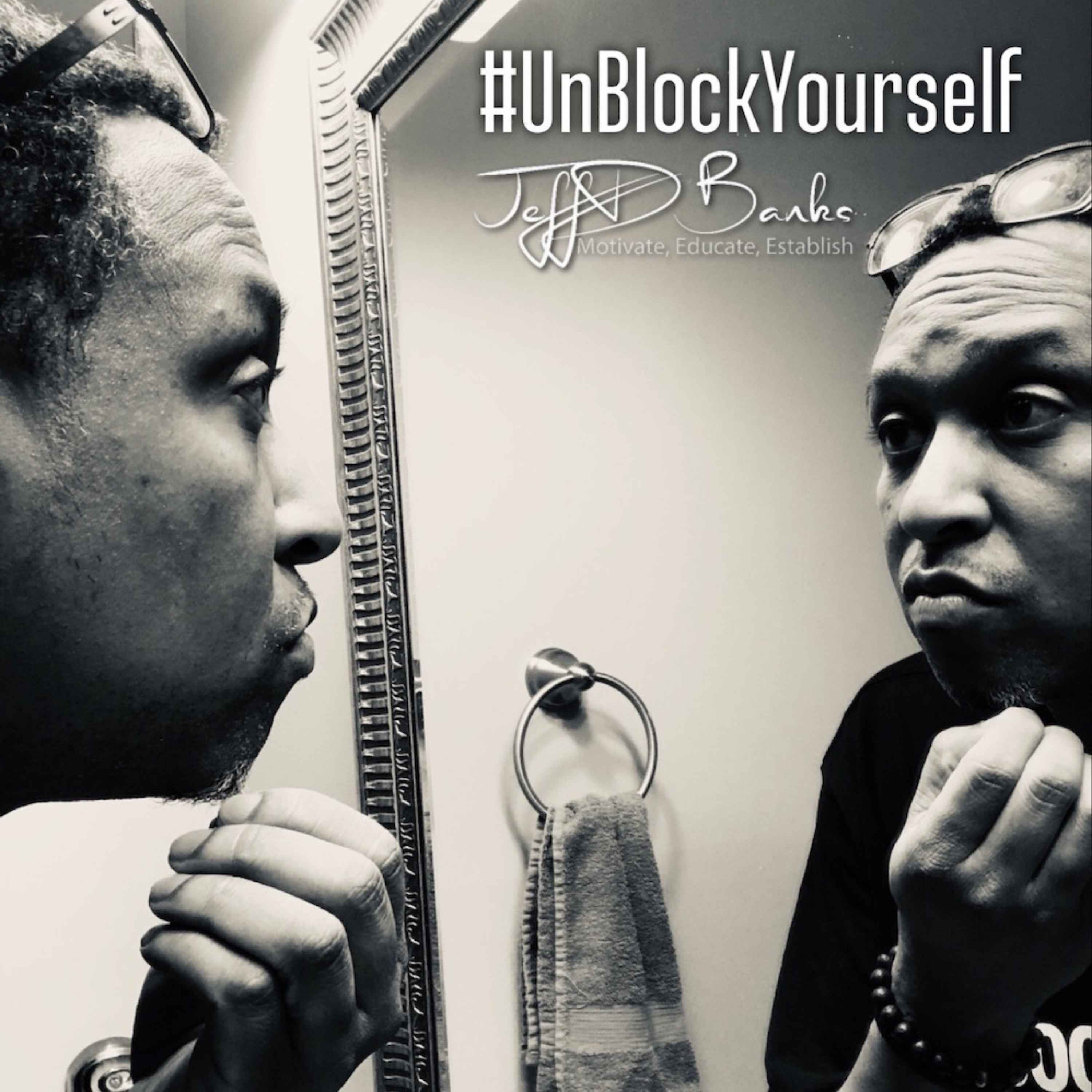
#UnBlockYourself helps you get out of your own way. Unblock your mind, body, spirit, finances, and social interactions to increase to become all that you are called to be!
#UnBlockYourself helps you get out of your own way. Unblock your mind, body, spirit, finances, and social interactions to increase to become all that you are called to be!
Episodes
Episodes



Friday Oct 01, 2021
Eliminating Wasteful Transportation
Friday Oct 01, 2021
Friday Oct 01, 2021
Review:
From a business standpoint these are the “Seven Mudas” for eliminating waste:
Moving: Excessive movement of people or machines. It is more common to talk about people movement, as this leads to wasted effort and time.
Transportation: Moving a product or material and the costs generated by this process.
Waiting: A person or process inaction on the manufacturing line.
Overproduction: When there are more parts in production than customers are purchasing. This type of waste spells big trouble for an organization.
Excess processing: Products that must be repaired to satisfy customers needs.
Inventory: A valuable product or material that is waiting for processing or to be sold.
Defects: Scrap or products that require rework.
I wanted to cover the same mudas, but apply these to our personal lives!
Last episode was on wasteful motion: how we need to put systems, policies, and procedures in place so we do not have to repeat mistakes over and over again.
Today: Wasteful Transportation
When I think of transportation I immediately think of carrying something. So today’s topic is really about carrying the wrong things that we shouldn’t be. The Bible says, “Cast your cares…” and another is “Take my yoke, for my burden is light…”, but how many of us go through things and decide, “I’m placing this problem in your hands God” or “I’m leaving this at the foot of the cross” and after we pray, go right where we left it, pick it up, and carry it around complaining, that if only i had the strength, or help, or support…
It’s there! Actually what is happening, we are going back to wasteful motions. When we say we are “giving it to God” we really need a plan in place or an accountability partner to safeguard us from circling back and picking it right back up.
Are there things you want to stop carrying? I know its a lot easier said than done, but this is why you have a group to help you. This is why you come up with a plan to keep you from the places you don’t want to go back too.
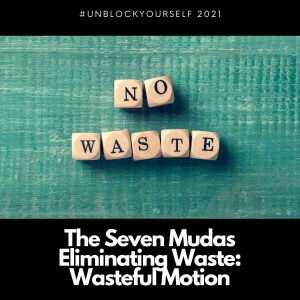


Thursday Sep 30, 2021
The Seven Mudas: Wasteful Motion
Thursday Sep 30, 2021
Thursday Sep 30, 2021
Back in March, I talked about being successful in Kaizen Teian, one must always be looking to eliminate the eight forms of waste:
Moving: Excessive movement of people or machines. It is more common to talk about people movement, as this leads to wasted effort and time.
Transportation: Moving a product or material and the costs generated by this process.
Waiting: A person or process inaction on the manufacturing line.
Overproduction: When there are more parts in production than customers are purchasing. This type of waste spells big trouble for an organization.
Excess processing: Products that must be repaired to satisfy customers needs.
Inventory: A valuable product or material that is waiting for processing or to be sold.
Defects: Scrap or products that require rework.
Non-utilized talent: When the management team fails to ensure that all the potential and experience of its people are being used. This is the worst of the eight wastes.
These are also nicknamed the “mudas”, which translates to uselessness or wastefulness.
What I would like for you to think about this week is what these mudas look like in your life. Taiichi Ohno, developed his “Seven Mudas” while creating the Toyota Production System. Let’s look at them and see if it can apply to areas in our personal life too:
Wasteful Motion:
Do you have everything you need? Or do you run around spending precious time gathering stuff you already should have with you because of procrastination.
Do you spend a lot of time putting out fires? Managing things we feel that others should know, but they seem to mess things up. It may or not be their fault, but do you have systems, policies, and protocols in place for people to manage themselves? (The way you would like things to go with or without you being there?)
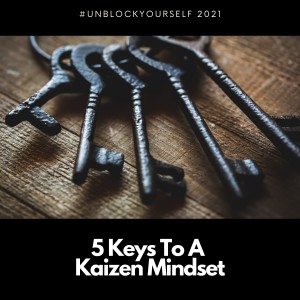


Friday Sep 24, 2021
5 Keys To A Kaizen Mindset
Friday Sep 24, 2021
Friday Sep 24, 2021
“Productivity is not about how to get more things done; it's about how to get the right things done. It doesn't mean just doing less for the sake of less. (It's] about making the wisest possible investment of your time and energy in order to operate at [your] highest point of contribution.” - Anthony Raymond
Key 1 - Have making improvements towards your life and projects the foundation of your everyday tasks.
Key 2 - Act on the small ideas for lasting change. Let nothing be too small and adjust accordingly. (Think of a plane’s flight from L.A. to Atlanta)
Key 3 - Know that when you do act, you are making a difference.
Key 4 - Streamline what you are doing. Use a Hansei time to reflect and see how you can make your time more efficient.
Key 5 - Focus on your focus. This means to pay attention to your project and stop being so distracted. Sometimes you may have to say no to things that do not fit in with what you are trying to do.
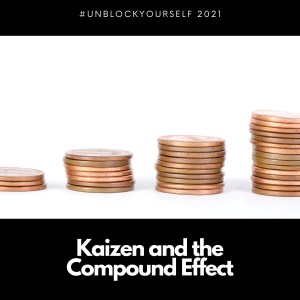


Friday Sep 24, 2021
Kaizen and the Compound Effect
Friday Sep 24, 2021
Friday Sep 24, 2021
The main focus of kaizen is to accomplish small tasks that lead up to big results. Many fail to see how this works, or think it will take too long to see the results. So let’s change the focus shall we? Let’s change the definition a little.
Kaizen is the successful result from consistent and compounded daily output towards the goal.
Let’s look at a 30 period. If I gave you a choice, would you take either $20 bill now, or let me pay you today like this: $.01 day one, .02 on day two, .03 on day three… for thirty days? Thinking it would take forever the lower intelligence says give me the money now! But in the long run, the amount given is actually $21.45. May not seem to be a very big difference, but if you took it over a twelve month period the $20 a month is $240. The penny a day method is $667.95. From a Penny day one, to $3.65 on the last day of the year. If you did this with a dollar: $66,795.00.
The point is, the little things add up. Do not make the small efforts meaningless in any way. Remember lingchi? Chipping away at something will destroy it completely. Death by a thousand cuts.
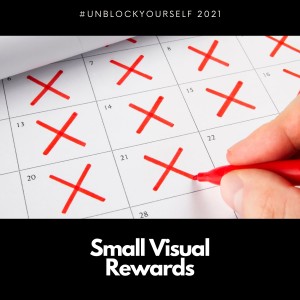


Thursday Sep 23, 2021
Small Visual Rewards
Thursday Sep 23, 2021
Thursday Sep 23, 2021
Having a system that can show progress visually is like having a reward system to satisfy both upper and lower intelligences. The Upper is satisfied by seeing long term marks toward accomplishing the habit to be formed, or to the goal itself.
The Lower is satisfied by accomplishing an immediate task and having the reward of marking it off. This may get old to the lower, so it may become uninterested after a while. What you may need to do is incrementally put a different or bigger reward to have it work towards.
For Example:
After a week of marking off the calendar, the lower may not feel that this is a reward any longer. If you add in that there is a weekly reward along with the daily, then it may be more enthusiastic about getting things done.
Some apps offer badges for accomplishments to show on social media, some people may take a picture, get ice cream, do a giveaway, whatever entices the lower to do better and stay on track.
The thing is, this is a part of the planning process to your success. It is hard to do things successfully making stuff up as you go. It very hard to hit a target you cannot see.
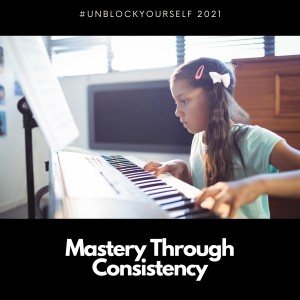


Thursday Sep 23, 2021
Mastery through Consistency: Don’t break the chain!
Thursday Sep 23, 2021
Thursday Sep 23, 2021
Kaizen is the improvement through making small changes. To form habits, we have to repeat things over and over until it becomes automatic. This is why so many apps have streaks and notifications, to form habits. Fed habits have long lasting consequences, good or bad. Since the actions we are taking become automatic, they are hard to break because we do things without thinking about it.
A few years ago Jerry Seinfeld gave some advice to take a calendar, and have one goal to do something of your choice, and daily mark off the day when the task was done. After a few days, there would be a satisfying chain forming. He said, “whatever you do, don’t break the chain, never break the chain!”
Ultimately what he was getting at was this: doing things habitually leads to a certain arrival, and mastery of something comes through consistency… If you want to do this, don’t break the chain, if you want to do that, don’t break the chain!
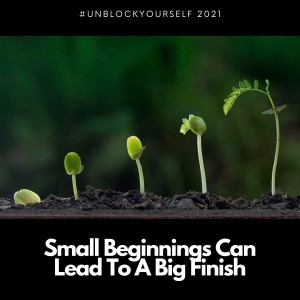


Wednesday Sep 22, 2021
Small Beginnings Can Lead To A Big Finish
Wednesday Sep 22, 2021
Wednesday Sep 22, 2021
A journey of 1,000 miles starts with a single step… We all have to start somewhere. First things first, we have to have our mind set to “I am going here.” If you are like me, when we set out on a long quest we tell Siri, or google, or the GPS system where we want to go, and trust it will plot the best course to get there.
We need to do this in life too, we find we want to go here and trust God will guide us there. Constant communication can keep us on track. Please don’t turn on the GPS, get a start, and then switch it off. That makes it easy to get lost.
Second, every step forward IS a step forward. Do what you can handle, and challenge yourself, but know that no matter how small your step is, it must be a step forward. Do not compare yourself to everyone else because there is only one you, and you are going to make it.
Kaizen is about small changes for the better, so don’t focus so much on big moves and spectacular results. I heard one person say, “it took me 17 years to become an overnight success…”
With the mindset of “I will do this”, and knowing its perfectly fine to take small steps, we will be well on our way to the life that fulfills us.
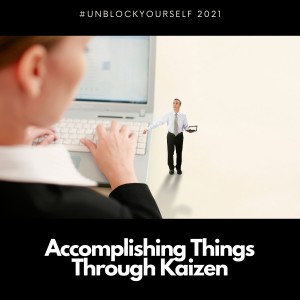


Wednesday Sep 22, 2021
Accomplishing Things Through Kaizen
Wednesday Sep 22, 2021
Wednesday Sep 22, 2021
Review:
Lingchi - death by a thousand cuts: to slowly be overwhelmed by things we let into our lives through open doors.
To combat that, we use hansei:
Han - Look upon and turn over
Sei - Look back and review the past
Hansei - Self Reflection:
Be aware of short-comings and flaws
Know what tempts you
Take responsibility for safe guarding against falling
Avoid blaming everyone else
Learn from past mistakes
Then we looked our ikigai (our reason for being) and it’s 4 areas:
What you love
What you’re good at
What you can be paid for
What the world needs
When this is unbalanced, we slow down, become unproductive, unsatisfied, and procrastinate often. This leads to:
Distractions
Tired mentally
Anxiety
Negative emotion as attached to the task
Lack of motivation or Not seeing the value of a task.
A common reason we get like this is because what think our ikigai is does not satisfy our upper and lower intelligences, and when they do not work together we find ourselves off course.
They seem to be in conflict most of the time because:
Your Upper intelligence is logical and methodical, and sees the long term benefits of things.
Your Lower Intelligence does not think at all, it pleases itself and survives. It will go along with anything that will bring it immediate pleasure or reward.
Since one is long term, and the other is short, they do not work together unless you have a way to satisfy both.
Which brings us to today:
Kaizen (/ky,zen/):
Continuous, incremental improvement is called kaizen. It originated in Japan and the word translates to mean change (kai) for the good (zen).
When set out to do a task, set a goal, or plan out something, we often make it way too big, which overloads our reality, or overwhelms the lower intelligence to where it is paralyzed with fear. Fear of not immediate gratification so it fights off this long term thinking.
Kaizen breaks down goals and steps into bite size pieces to where you are working towards the long term, but so small that the lower intelligence is satisfied and sees the rewards through small accomplishments it can celebrate in.







